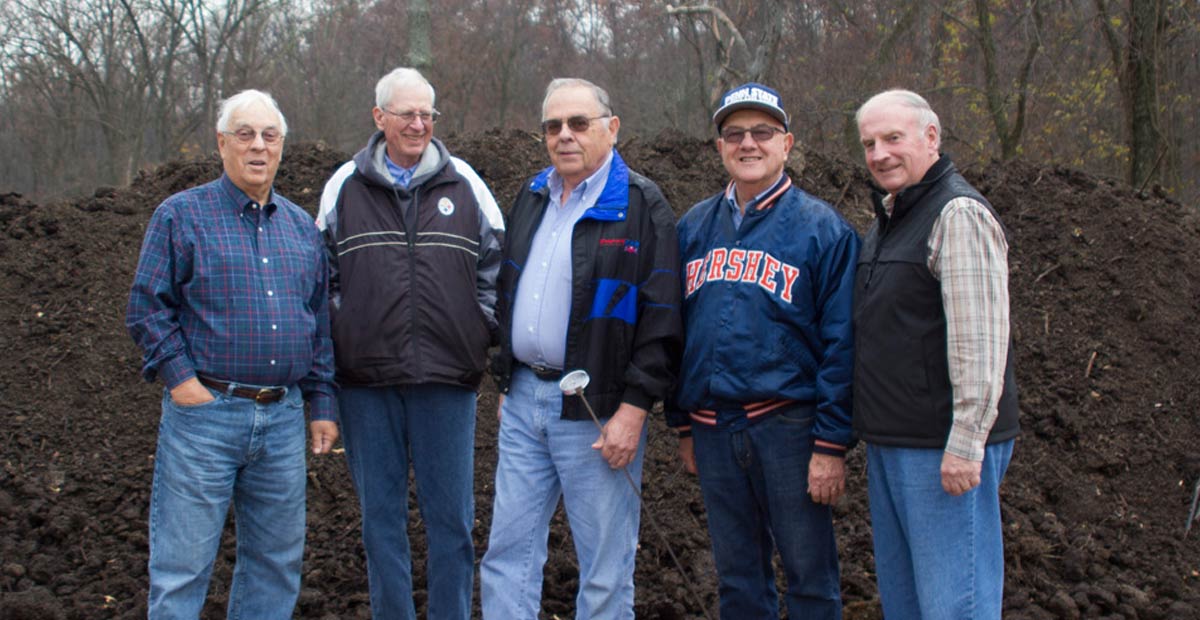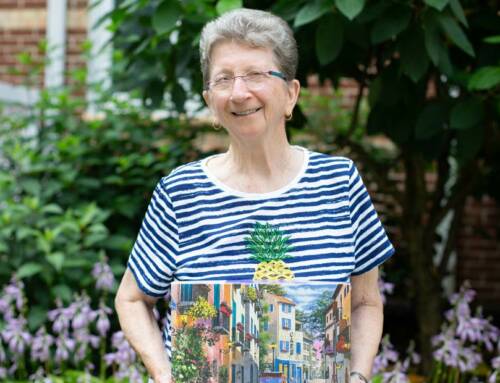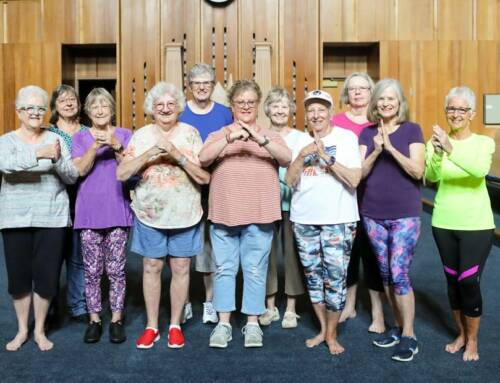By Jeff James and Tim Spangler, residents of Masonic Village at Elizabethtown
You may have heard the old saying, “one man’s garbage is another man’s compost.” Or, maybe you haven’t heard that one, but it is something that every current or previously practicing gardener can certainly agree upon. Many of the resident gardeners here in Masonic Village at Elizabethtown have individually practiced some version of composting, but the effort became a bit more organized in the spring of 2015, when a few receptive gardeners decided to expand upon Pat and Ray Horn’s practice of collecting grounds from the various campus kitchens and accumulating them for use at the resident gardens.
Another old saying, “what goes around, comes around,” seems like a perfectly apt description of a composting project, albeit a bit simplistic, as the village composters soon found out. Composting is often defined as “nature’s way of recycling.” However, if it were really “nature’s way,” assorted woodland wildlife would be carefully working with their piles of green and brown plant material, adding water, turning the piles with their compost fork, and carefully measuring the temperature in the center of their pile. Successful composting, as we have learned, takes people, a degree of know-how, dedication, and a little muscle. Without that, it may be mulching, but it’s not really serious composting.
Ken Burd, Resident Garden Manager, along with Scott Ruth, Director of Land Management, began organizing a cooperative composting effort over a year ago. Ray Laubenstein, with some serious background and experience at Rutgers, provides technical support (and the thermometer). Campus restaurateurs Michael Swope, Adam Thomas, and Jim Gardner, along with Tad Kuntz, in the Farm Market, provide the materials. (The uninformed might call it garbage.) Jim Tarman, Tim Spangler, and Jeff James are the weekly collection agents. Peter Kern, Landscape Supervisor, does the heavy lifting – turning the pile as needed.
A waste of time, you might ask – particularly for folks at a point where time may not be money – but it is “of the essence!” Well, for gardeners, compost is often described as black gold. It makes soil healthy, easier to work and plant, and fosters larger, healthier crops. The value of composting, however, goes far beyond the individual garden plot. The Creator has given us access to only one planet (at this time), so it would behoove us to take care of it and do whatever we can to preserve and protect.
In just a brief article, it’s not possible to describe all of the environmental benefits of composting – many are obvious. Consider one very interesting observation from the U.S. National Soil Survey Center: “It’s estimated that a human with a compost fork and a watering can, carefully piling up organic matter with the correct C/N ratio, water content and aeration so that it cooks away at high temperatures and emits jets of steam, can make as much topsoil in a year as nature can make in a century.”
If this project can continue to be a success, resident gardeners will have a good source of soil food. However, real success might be when it becomes feasible for Masonic Village at Elizabethtown to develop composting procedures impacting not just the resident gardeners, but this entire beautiful campus. And we all know – one more old saying – “It takes a village!”




